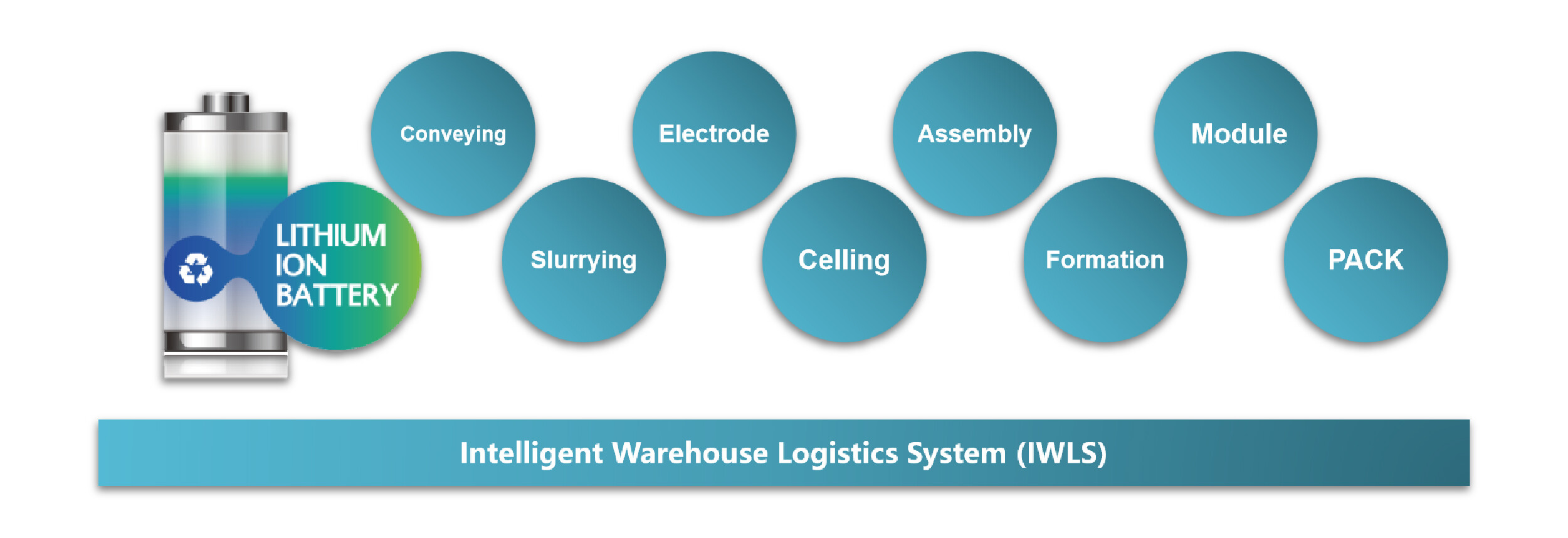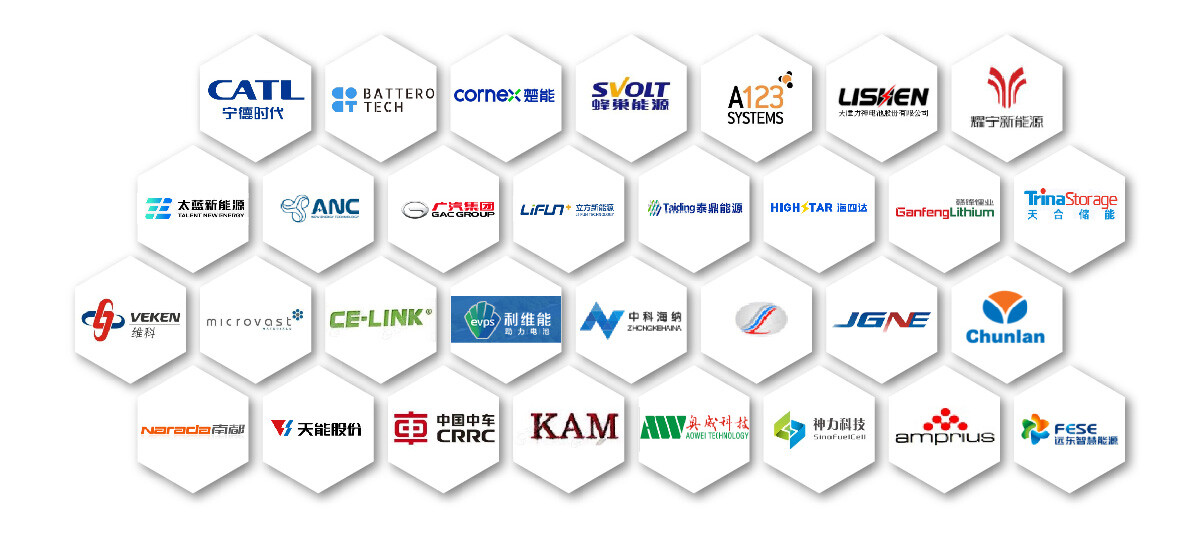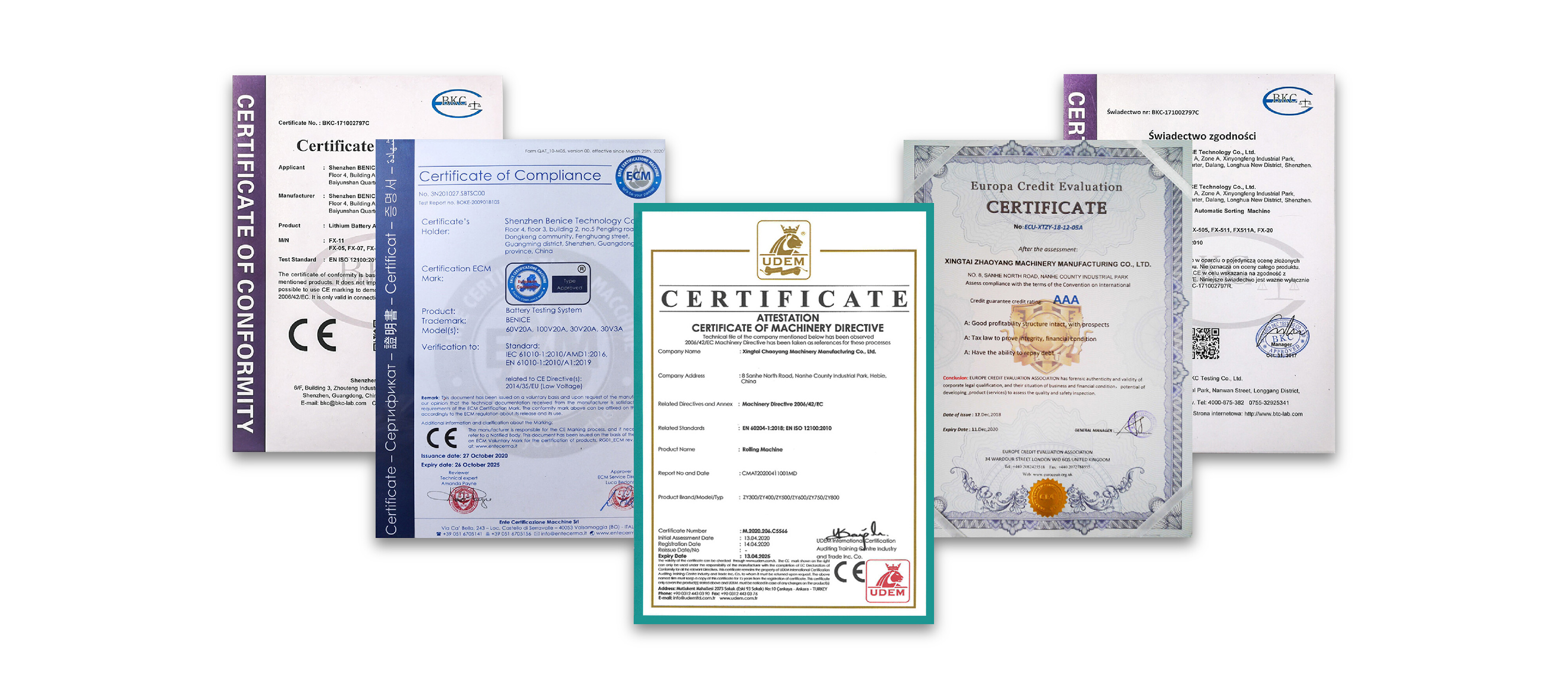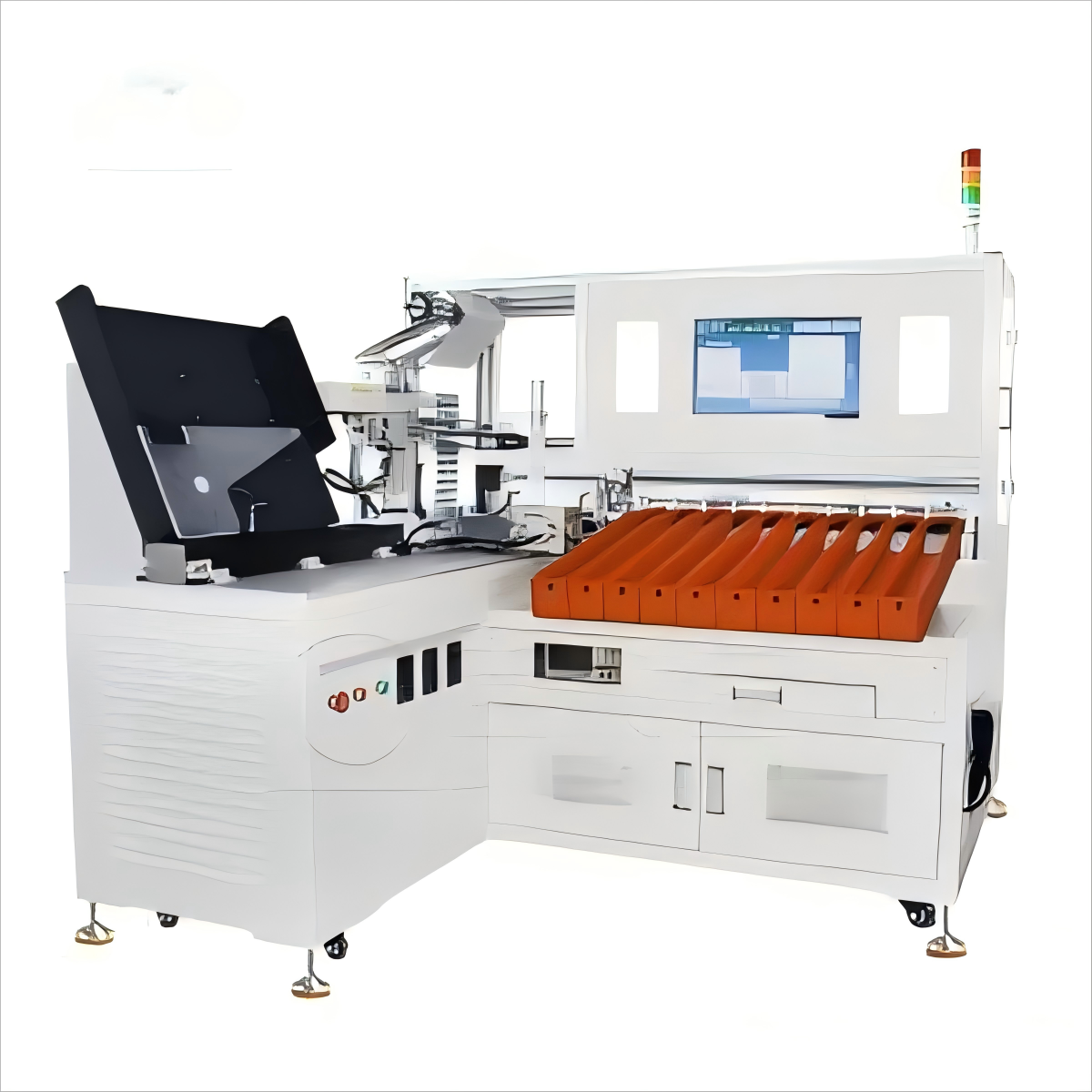
1. One-Stop Service
2. Modular Flexible Design
3. Selectable Automation Levels
4. Intelligent Manufacturing Support
5. Quality Monitoring Assurance
6. High Efficiency and High Productivity
7. Human-Centric Engineering Optimization
8. Safe and Environmentally Friendly Design
9. Technical Training and Maintenance
10. Customized Development
Product Description
1. Keywords:
Cell sorting equipment
Lithium battery automatic sorting machine
Cell testing and grading machine
High-precision cell sorting
Battery capacity and internal resistance sorting
Automated cell sorting machine
2. Introduction:
The cell sorting machine is a device used for electrical performance testing and automatic grading of lithium-ion battery cells. By measuring key parameters such as cell voltage, capacity, and internal resistance, the cell sorting machine can automatically classify the cells, ensuring consistent parameters within the same module. This process improves the consistency and performance of the battery module, reducing the risk of shortened battery life and safety hazards caused by mismatched cell parameters. The cell sorting machine features high-precision testing modules and an automated sorting mechanism, making it an essential equipment in lithium battery module production lines.
3. Process Diagram:
1:Cell Feeding:
Operators or automatic feeding devices place the cells to be tested in the feeding area or conveyor belt.
2:Cell Identification:
Cell codes are read through barcode scanning or a vision recognition system, establishing cell traceability.
3:Electrical Performance Testing:
Voltage Testing: Accurately measure the open-circuit voltage of each cell.
Capacity Testing: Determine cell capacity using rapid charge/discharge or direct reading method (optional).
Internal Resistance Testing: Measure cell internal resistance using AC or DC method.
4:Data Processing and Grading:
Test data is transmitted to the control system and compared with preset grading standards.
Cells are graded into different levels based on voltage, capacity, internal resistance, etc.
5:Automatic Sorting:
The control system drives mechanical devices to transfer cells to corresponding outlets or trays.
6:Data Recording and Storage:
Test data and sorting results of each cell are recorded in a database for quality traceability and management.
7:Abnormality Handling:
Defective or abnormal cells are automatically alarmed and transferred to the reject area.
8:Cell Unloading:
Sorted cells are removed by operators or automatic devices for the next production step.
4: Technical Specifications:
Test Items:
Voltage Measurement Range: 0 V - 5 V, Accuracy: ±0.5 mV.
Internal Resistance Measurement Range: 0.1 mΩ - 100 mΩ, Accuracy: ±0.1 mΩ.
Capacity Measurement Range: Optional, depending on device configuration.
Sorting Levels:2 - 20 sorting levels can be set.
Processing Speed:2000 - 6000 cells/hour (depending on model).
Applicable Cell Specifications:Cylindrical Cells: 18650, 21700, 26650, etc.
Prismatic Cells: Customizable adaptation.
Communication Interface:Supports RS232, RS485, Ethernet, etc., for data upload and device integration.
Control System:Industrial PLC, touch screen HMI.
Power Requirements:AC 220V, 50Hz, Power: Approx. 2 kW.
Air Source Requirements:Compressed Air: 0.5 - 0.7 MPa (if pneumatic devices are present).
Device Dimensions:Depending on model, approx. 1500 mm × 1000 mm × 1800 mm.
4. Technical Features:
High-precision Testing:Adopts high-precision testing modules to ensure accurate voltage and internal resistance measurements, guaranteeing sorting quality.
High-speed Sorting:Optimized mechanical structure and control algorithms enable rapid cell testing and sorting, improving production efficiency.
Multi-level Sorting:Sorting levels and standards can be freely set according to production needs, flexibly adapting to different product requirements.
High Automation:Automatic feeding, testing, sorting, and unloading, fully automated process, reducing manual intervention and human errors.
Data Traceability:Cell codes associated with test data enable full product quality traceability and management.
User-friendly Interface:Touch screen operation, intuitive interface, convenient parameter setting and status monitoring.
Safety Protection:Equipped with emergency stop buttons, photoelectric sensors, and other safety devices to ensure operator and equipment safety.
Strong Compatibility:Modular design allows adjustment or replacement of fixtures to accommodate different cell specifications.
5. Application:
Lithium-ion Battery Module Production:
Electric vehicle traction battery modules
Energy storage system battery modules
Battery modules for power tools, electric bicycles
Consumer electronics battery modules (e.g., laptops, electric toys)
Battery Manufacturing Companies:
Quality inspection and classification during cell production process
Battery Research and Testing Institutions:
Laboratory performance testing and screening of cells
Sorting of Other Battery Types:
Nickel-metal hydride, lead-acid, etc. (customization required).
Lithium Battery Intelligent Production Line Solution

Partners

Certificates

Send me a free quote
Related Products

Provide you with an integrated solution
24/7 before-sales and after-sales services
Comprehensive technical support



